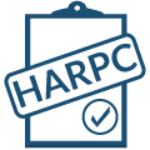Deadlines to develop Food Safety Plans have passed. FDA is actively enforcing compliance.
Is your Food Safety Plan FDA-Compliant?
The U.S. Food and Drug Administration (FDA) requires most registered food facilities to implement Hazard Analysis and Risk-Based Preventive Controls (HARPC) Plans.
A HARPC plan must be written and overseen by a Preventive Controls Qualified Individual (PCQI)A PCQI is an individual who has either completed training under a standardized curriculum, or is qualified through job experience to design and implement a food safety system..
If you process certain foods for U.S. consumption without a HARPC plan, your facility may be non-compliant with FDA regulations.
Obtenha assistência especializada
Registrar Corp’s Food Safety Specialists can develop an FDA-compliant HARPC Plan for your facility.
FDA’s Unique Food Safety Standard
A HARPC plan must follow unique standards mandated by the FDA Preventive Controls rules. Other food safety systems, such as Hazard Analysis and Critical Control Points (HACCP) plans implemented as part of BRC, ISO 22000, or GFSI certifications may not completely satisfy FDA Preventive Controls requirements.
Key Differences Between HACCP and HARPC

Hazards
In addition to the biological, chemical, and physical hazards typically identified in a HACCP plan, a HARPC plan must also consider:
- Radiological hazards
- Allergens
- Hazards requiring supply chain controls
- Hazards introduced for economic gain

Controls
While HACCP plans may apply process controls at critical control points, a HARPC plan may also apply:
- Allergen controls
- Sanitation controls
- Supply chain controls
- Other preventive controls
Components
HARPC introduces components not addressed by HACCP. Under HARPC, most facilities are required to establish:
- A Recall Plan
- A Supply Chain Program
HARPC Plan Components
Hazard Analysis
An analysis of known or reasonably foreseeable biological, chemical, physical, radiological, and allergen hazards for each type of food handled by a facility. A facility must consider hazards that may be intentionally introduced for economic gain.
Preventive Controls
Controls applied to minimize or prevent health risk associated with identified hazards. These may include process controls, allergen controls, or sanitation controls.
Supply Chain Program
A plan to ensure hazards are controlled throughout a food’s supply chain. Manufacturers must verify controls applied by a supplier and establish controls for hazards not addressed by a supplier.
Recall Plan
A plan establishing procedures to notify appropriate parties of a recall, conduct effectiveness checks to verify the implementation of a recall, and dispose of a recalled product. A facility must develop a recall plan if it identifies a hazard requiring a preventive control.
Monitoring
Procedures for monitoring and documenting the application of preventive controls to determine whether control measures are operating as intended.
Corrective Action
Procedures a facility must enact and document if it discovers preventive controls are not properly implemented.
Verification
Procedures for verifying and validating components of a HARPC plan, including validation of preventive controls as well as verification of monitoring procedures and corrective actions.
Recordkeeping
Documentation of all components addressed in a HARPC plan. FDA requires all records related to food safety to be kept for a minimum of two years.
If your Food Safety Plan does not contain all of these components, you may be violating FDA regulations
FDA Enforcement of Preventive Controls
The Agency has issued at least 645 citations for Preventive Controls ViolationsBeginning of Enforcement to April 25, 2019
Common citations include:
You did not have a written food safety plan.
Your hazard analysis did not identify a known or reasonably foreseeable hazard that required a preventive control.
You did not implement adequate written procedures for monitoring sanitation controls.
You did not identify a preventive control for a hazard when one was needed.
Your allergen controls procedures did not include appropriate controls for labeling.
FDA is regularly inspecting facilities’ HARPC plans. Ensure compliance to avoid costly regulatory action.
Registrar Corp Makes Compliance Easy
Registrar Corp’s PCQI Food Safety Specialists can develop an FDA-compliant HARPC plan for your facility.
Registrar Corp’s Food Safety Specialists can provide:

A complete review of your food safety documentation

A compliant HARPC plan for your facility

One-on-one expert assistance from a Food Safety Specialist

One revision of the same HARPC plan within 30 days

